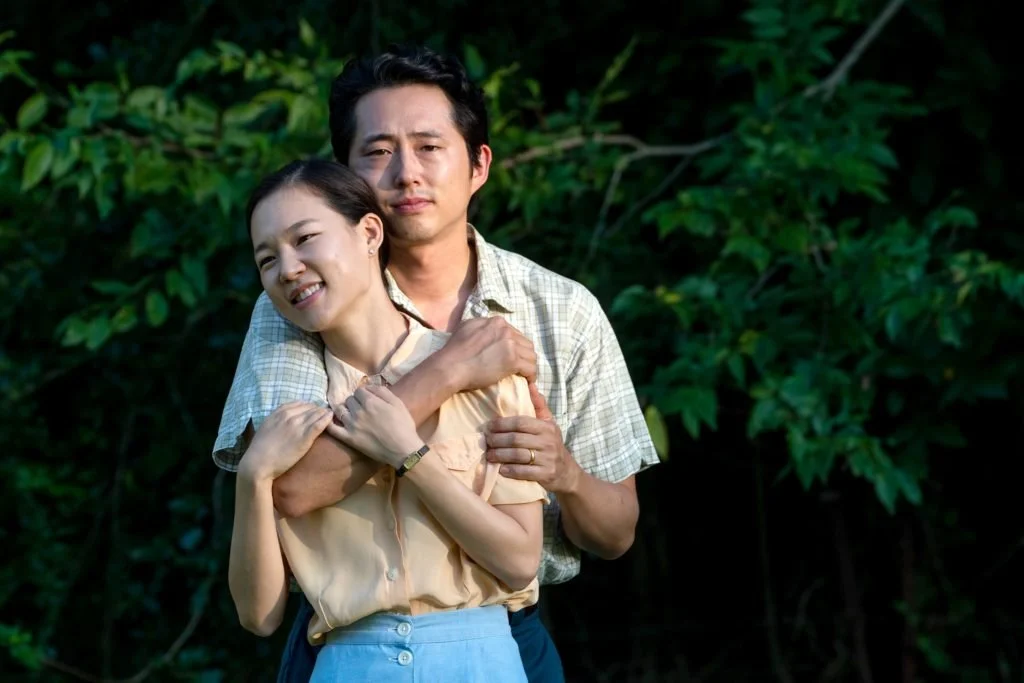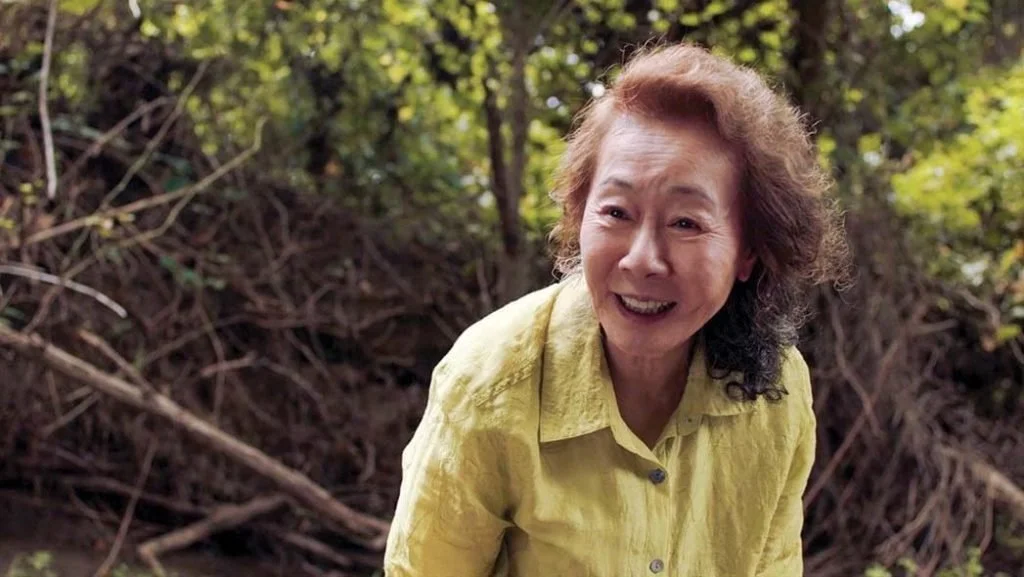What Award-Winning Film 'Minari' Can Teach Us About Creating One's Destiny
This movie review of Minari, which won the 2021 Golden Globes Award for Best Foreign Language Motion Picture, argues the film, by screenwriter & director Lee Isaac Chung and starring Walking Dead's Steven Yeun, is definitely worth watching despite some of the haters.
Breakout stars Alan Kim and Noel Kate Cho play the children in 'Minari'
Different from Regular 'Diaspora' Asian American Films
If Asian American cinema breaks through to Hollywood on the rare occasion, it usually relies on tired old tropes. 1) There's the bond between an Asian community and their new white savior. 2) Or there's the second-generation immigrant child being blocked from fully assimilating into white society because of their 'Asian' heritage. 3) And there's the rebellious Asian American kid who just wants to be independent as an American instead of group-oriented as an Asian. Boring.
'Minari' truly shatters this artistic ceiling with one clever but super obvious storytelling device: focusing the movie's point of view on the immigrant parents.
Yeri Han, Steven Yeun play parents. Director: Lee Isaac Chung Credit: Josh Ethan Johnson/A24
Ugh, not another diaspora movie?!
Why is this so groundbreaking? Isn't this what the Joy Luck Club did? No, that really was about the child's arc of trying to resolve a misunderstanding about her parents and heritage with her American identity. How about Crazy Rich Asians? No, even though it was an all-Asian cast in Singapore, the point of view was again from a second-generation Asian American in a culture battle between Asia and America.
We've never had a real Hollywood film told from the perspectives of immigrant Asian American parents, especially from a time in their relative youth. Doing so gives us a voyeuristic view into an Asian American household and what happens in that bubble, especially when it's devoid of white people and children who begin to question their identity.
Man Vs. Nature Film
As a result, Minari becomes a film that's arguably quintessentially AMERICAN - a fight with the land to secure one's independence. Steven Yeun, the father, is in a war with the plot of land he purchased in hopes of providing an independent economic source for his family. In essence, he is trying to achieve the American dream of wrestling the land into creating a living. His struggle is tunnel vision. His efforts are full of sacrifice. And his way of life shows how unconcerned this generation is with white people and assimilation. Their first and last concern was survival.
Details, Details, Details
This film is a masterpiece in getting the physical details so precise to take you back to the late 1970s and early 1980s. Korean households will be aghast like I was on how the director got his hands on vintage Mountain Dew, an Oldsmobile station wagon and WWF wrestling clips. If anything, watch the film for a time capsule experience of life in that era for an Korean immigrant family. It won't be anything like white or black households.
Parent's Point of View
Going back to the rarity of American movies with Korean immigrant parents as the lead characters, second generation Korean Americans may also appreciate seeing the rationale of their 'crazy Korean' parents fighting at home. As a child, fighting is just seen as binary - something bad that should be shut off.
But as you can see from what's hanging on the line for the parents of the film, you can see why the mother and father disagree over what the future will bring from the tough choices they have to make today.
Film's Critiques
My friends who watched the film with me had two main critiques of the film: 1) they wanted more depth in the story especially from the kids' characters and 2) they wanted more twists and turns in the dramatic tension.
This film isn't about us
The first point may be rooted in their desire to be represented as the main characters on screen. After all, that's how it's been until this point. But I'd argue that this film isn't about us. It's about our parent's generation. And hallelujah to that. It was so different to watch. Having them converse in their native Korean when alone with each other elevated them to real characters. This is what would really happen. Usually we're used to depictions of parental caricatures who have to speak in accented, broken English that otherizes them and puts them on a lower intellectual level than what's true in real life.
Seeing them as real, salt of the earth characters required flipping in and out of Korean and English. The strategic choices of using Korean in the script also elevates this beyond typical Asian American diaspora films.
You get a lot for $2 Million Dollars
I agree the script could have had more twists and turns and greater swings in dramatic devices. But, after looking up the budget of the movie ($2 million dollars), I think you get more than what you paid for. Two million usually just goes to the screenwriter. They did an entire movie on-location with huge stars for that. Even the legendary Youn Yuh-jung flew in from Korea to play the grandmother.
Produced by Brad Pitt's Plan B Entertainment, the film definitely had the backing of a Hollywood machine. But maybe not the budget it deserved for the haters. However, even this 'get 'er done and out into the market during coronavirus' production won one of film-making's highest honors - the 2021 Golden Globe Award for Best Foreign Language Film.
But is it a Foreign Language Film?
A truly American production being lumped into the foreign language film category had the Asian American twitterverse up in arms. And the Golden Globes are truly a Eurocentric, and to be more specific, Anglo-American bunch. European productions don't count as foreign language, even if they're produced and set in Europe, as long as the characters speak in British English.
True American Dialect
Though Minari is mostly spoken in Korean, I'd argue that it's truly an American language film. In their private bubbles, Korean American households use Korean as the dominant language, but English is sprinkled in by everyone. Outside the bubble, English is used no matter the level of fluency. And living in Korea for all these years, I can tell you that South Koreans can tell who's Korean American by the way they speak Korean... even if the immigrants are native Korean speakers. The language drifts. Sort of like Spanglish.
Playing the Awards Game
However, I'm glad that Minari was placed in the foreign language film category because it allowed two Asian American directors to win Golden Globes this year. Chloe Zhao won for Best Motion Picture - Drama for 'Nomadland' starring Frances McDormand. Awards are such a political game anyhow where winning is the most important thing despite all that humble brag nonsense of 'it's just an honor to be nominated'.
Gamble Paid Off
It was a gamble that paid off if Plan B Entertainment had a choice of category submission. If not, it was Golden Globe racism that ironically rewarded the artistry of the production.
Will Patton, Steven Yeun Director Lee Isaac Chung Credit: Melissa Lukenbaugh/A24
White People as Extras
'Minari' will also show you what it looks like when no other white characters have larger character arcs than the Asian Americans in the film. The mighty Will Patton gets the largest 'white' role in the film and even his arc has limits. It's usually much more than an Asian American actor would get. But nothing like a role a white actor would expect. The shoe on the other foot, you know. It's interesting.
All in all, yes, go see 'Minari'. It's beautiful cinema. And it will make you feel connected and grounded.












